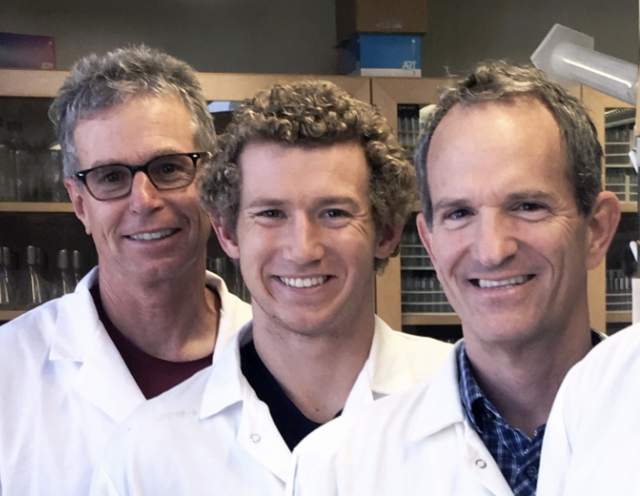ICB Researchers Develop Early Detection Test That Could Save Thousands of Lives

ICB team members: Michael Mahan, Scott Mahan and Douglas Heithoff
ICB Project Leader Michael Mahan and a collaborative team have developed a new test that diagnoses sepsis—the body’s life-threatening extreme response to infection—soon after infection, potentially increasing patient survival rates in a condition that kills more than 250 thousand Americans annually.
The team included UCSB scientists Scott Mahan and Douglas Heithoff as well as researchers from UCSD and Sanford Burnham Prebys Medical Discovery Institute (SBPMDI). The study was published in THE LANCET, eBioMedicine.
"The holy grail of biotech is to solve sepsis," said Mahan. "Few diagnostics exist for this condition. It's often found when things like kidney or liver failure occur, and by then there is often permanent organ damage.”
“The key finding was identifying proteins in the blood that arise very soon after infection—well before overt disease symptoms,” Mahan explained. “Early detection is critical for clinical intervention to increase survival in sepsis patients. A small amount of blood is collected and analyzed for an increase in blood clotting proteins," said Mahan. Such detection enabled early antibiotic treatment.
While the study was done on mice it provides the platform for human clinical tests to follow. Mahan believes they are about five years away from rapid, easy-to-perform tests being readily available.
The team will not be seeking a patent or licensing in order for their science to be widely available and free to anyone on an open-source basis. “It’s about saving lives,” says Mahan.
